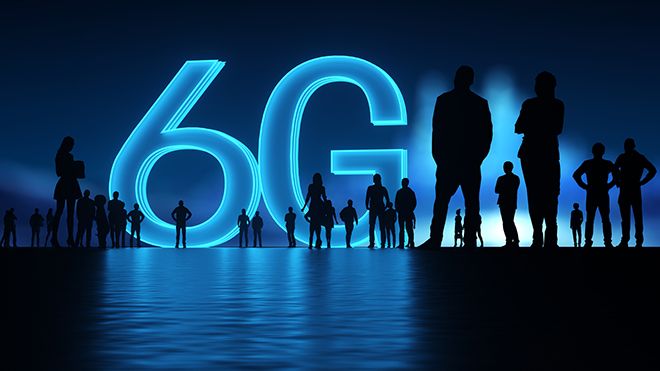6G Will Come Faster than Expected. 5G Might Just be a Forerunner

While many African countries are yet to decide on adopting 5G, LG seems to be in the lead in the conflict after announcing the successful testing of wireless 6G terahertz (THz) data transmission and reception over a distance of 320 meters in a frequency range of 155 to 175 GHz.
The test was conducted on September 7 at the Fraunhofer Heinrich Hertz Institute (HHI) in Berlin, Germany by the South Korean business. LG claims that this is a big step toward the commercialization of 6G THz in both indoor and outdoor urban locations because the reference cell coverage of base stations for urban macro cells is roughly 250 meters outdoors.
The range of 6G technology, which uses ultra-wideband frequencies, is constrained, and both transmission and reception may experience power loss. Together, LG, Fraunhofer HHI, and the Fraunhofer Institute for Applied Solid State Physics (IAF) developed a power amplifier that can increase transmission strength and a receiver low-noise amplifier that can enhance incoming signal quality in order to address these problems.
The output of the multi-channel amplifier utilized in the most recent demonstration was more than 20 dBm, an increase of more than 5 dBm from the LG and Fraunhofer HHI & IAF’s prior method. A low-noise amplifier was additionally installed in the receiver, considerably reducing the creation of noise during reception.
These new technologies are incorporated into LG’s most recent module design, making it suitable for IC fabrication in the future.
What Does 6G Hold?
All 6G networks will include mobile edge computing, as opposed to existing 5G networks that need to incorporate it. By the time 6G networks are deployed, edge and core computing will be more integrated as a part of a combined communications and computation infrastructure framework. As 6G technology becomes operational, this strategy will likely offer a number of benefits. These advantages include easier access to AI capabilities and assistance for high-end mobile systems and devices.
It is also capable of rearranging its own resources in accordance with demand. This demonstrates that it can also change on its own. Additionally, it can indicate when additional resources are required in order to complete a task without difficulty.
Also read: https://theouut.com/rain-announce-plans-to-launch-mobile-5g-by-2023/
Verizon’s initial 5G millimeter testing (together with Qualcomm and Novatel Wireless) can only operate up until the spectrum reaches 39GHz, which will be utilized for spectrum comparison. The major goal of 6G network research is to figure out how to create a terahertz-range network connection that is faster and more reliable, allowing it to transport data at a rate of more than 400 gigabits per second (Gb/s).
This technology will be capable of supporting thousands of wireless connections at once. With this, it will have 10 to 1,000 times the capacity of 5G networks and systems. In addition, there are numerous applications for medical imaging, augmented reality, and Internet of Things (IoT) sensing.
The Ouut’s Take
90% of the countries of the world do not have a 5G network, YET. Dr. Kim Byoung-hoon, CTO and executive vice president of LG Electronics, stated that the company “would continue to collaborate with research organizations and industry innovators to further consolidate its leadership in 6G technology.
“We expect 6G to be a major driver of future business and new user experiences, and there is no place we’d rather be than at the forefront of its development.”
Also read: https://theouut.com/metaverse-is-not-web3/
The majority of us won’t likely start utilizing this technology until at least 2030, and debates regarding 6G standards won’t start for a few more years. 6G wireless networks will no doubt provide significantly faster data transfer rates with lower latency and improved dependability than 5G wireless networks, but we’ll have to wait.
The day is not far when all the sci-fi movies will start to come true. Fast communication is becoming more crucial than ever due to emerging technologies like the Metaverse, augmented reality, and virtual reality. 5G promises to make sure that your voice does not lag by seconds when you are speaking to someone in the Metaverse. Now imagine what 6G will offer.
